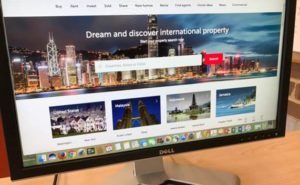The ‘Ubers’ of digital real estate have housing researchers wary
The rapid global expansion of the residential property market driven by the uploading of digital real estate in the last decade has housing researchers concerned.
The globalisation of residential real estate through new digital platforms will be raised in a keynote address by the University of Sydney’s Dr Dallas Rogers at the 2017 Australasian Housing Researchers conference at RMIT University in Melbourne on Thursday, 16 February.
Dr Dallas Rogers, a senior lecturer and housing researcher in the University of Sydney’s School of Architecture, Design and Planning said: “Millions of residential homes from at least one quarter of countries around the world are now uploaded for sale on thousands of Internet-enabled real estate sites.
“It is one of the most significant changes for the housing industry in 50 years that has seen the global expansion of residential real estate. It takes the housing market into unchartered territory,” said Dr Rogers.
Dr Rogers says international property portals like Juwai ”“ with 2.4 million properties listed in 58 countries (Q1 2014) – and the REA Group are appealing to foreign investors by enabling them to power-up a digital real estate product on their smartphone to buy or sell property from anywhere in the world.
“These platforms are using the same real estate practises and ideologies that built the great Australian dream during the 20th century, but uploading them in a new ”˜international digital real estate’ space for the 21st century globally mobile investor.
“While real estate investment created significant housing wealth for many Australians during the second half of the 20th century, it also exacerbated housing disadvantage. We can’t afford the housing affordability problem it created in our cities to be fuelled by unregulated digital real estate,” said Dr Rogers.
Dr Rogers says that digital real estate platforms appeal to investors, repositioning housing as an asset rather than a home or place to live. The industry is using the Internet’s global reach to create new international real estate markets, while pushing local regulation and investment compliance onto their users. The larger digital real estate companies are looking to carve out a monopoly on local markets with little concern for the impact on communities.
“We need to pay closer attention to digital real estate practices and have effective government policy and regulation in place to protect local citizens and communities,” he said.
Dr Dallas Rogers’ has published a new book, Geopolitics of Real Estate, which traces the history of foreign investment in real estate and the recent increase in individual foreign investment in real estate in western countries, due to the expanding middle class in BRICS (Brazil, Russia, India, China and South Africa) and Asian countries that has seen new sensitivities around cultural and foreign policy arise.
“As an Australian researcher, it is interesting that one the most important yet never raised questions in the foreign investment debate is: whose land is being traded when we are talking about foreign investment. That surely takes us back to the original dispossession of Indigenous people from the land during the colonial era,” said Dr Rogers.
Short URL: https://indiandownunder.com.au/?p=8410

